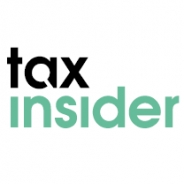
James Bailey of Tax Insider Lite looks at claiming for the cost of running a car for property rental business owners.
Introduction
If you use your car for the purposes of your property business, you can claim an appropriate amount of the running costs as a business expense, but what can be claimed and how is a claim made?
Apportionment
You will need to apportion the cost of the car between business and private travel. Make a note of the recorded mileage at 5 April each year, which will give you your total mileage for the tax year, and keep a notebook in the car to record the mileage of any business trips. This will give you the proportion of the running costs you can claim. If your total miles for the year are 12,000, for example, and your business trips total 2,000 miles, you can claim 2/12 of your car costs.
What is Business Mileage?
In order to qualify as business travel, a journey must be “wholly and exclusively” for the purposes of your property business. If you combine a trip to the DIY store to collect materials for work on a property with a trip to the supermarket, that journey was not “wholly and exclusively” for your property business and none of the mileage can be claimed.
Be careful if you run your property business from an office away from your home. Travel from home to the office is not business mileage but travel from either home or the office to a letting property is.
If your letting is done through an agent, HMRC are likely to be very sceptical about any claim for business mileage, as they will argue that the necessary travel will have been done by the agent, not you.
What Expenses Can Be Claimed?
All the normal running costs can be included – fuel, oil, insurance, servicing, repairs, cleaning, AA membership, and so on, together with any interest on a loan to finance the car. Remember, it is only the business proportion of all these that can be claimed.
You can also claim in full any expenses specific to a business journey, such as tolls and parking charges – but not parking fines. You can also claim Capital Allowances on the cost of the vehicle:
Capital Allowances
Capital Allowances write off the cost at an annual rate that depends on the car’s CO2 emissions. If these are 160g/km or less, 20% of the cost is written off each year. If the emissions are greater than 160g/km, the rate is 10%.
As with other expenses, you have to apportion the Capital Allowances between business and private mileage. If you buy a car (emitting under 160g/km) for £12,000 and your business miles are 2/12 of the total as above, you take 20% of the cost (£2,400) and you can then claim 2/12 of that (£400). Next year the expenditure remaining will be £12,000 - £2,400 = £9,600, and you take 20% of that, and so on.
When you sell the car, you bring in the sale price and the resulting surplus or deficit (again restricted to the business proportion) is either an allowance to be claimed or a charge to be taxed. Given the rate most cars depreciate, it is usually an allowance!
Practical Tip
A simpler method: A trader whose turnover is under the VAT threshold (currently £70,000 per year) can, if he wishes, dispense with all the above and simply claim 40p per mile for the first 10,000 business miles in the tax year, and 25p for any additional miles. Strictly speaking, this does not apply to property businesses but I have yet to see an inspector dispute it in a case where the gross rental income was less than the VAT threshold.
If you use this method, you can also claim specific costs such as tolls, parking and loan interest but everything else including depreciation is covered by the 40p per mile. If you use this method, you must continue to use it for as long as you have that car – you cannot change to the strict method of apportioning expenses until you change your car.



Please register or log in to add comments.
There are not comments added